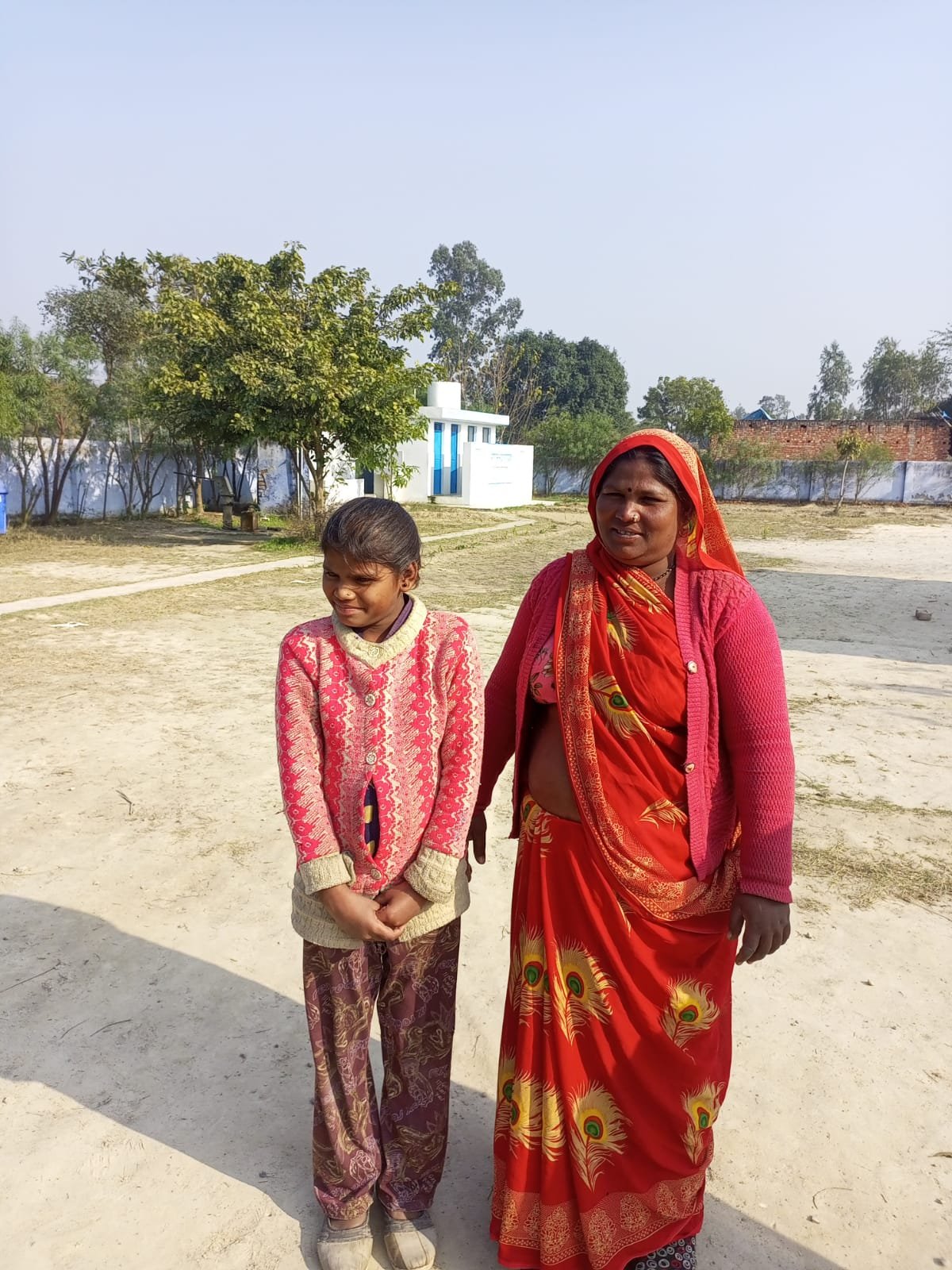
How Sensitive Handling Can Break The MHM Taboo In Hardoi!
Menstrual hygiene in the villages remain taboos unless handled with sensitivity. A case in point is Sewa, a Gram Panchayat in Hariyawan block in Hardoi District, Uttar Pradesh which is about 15 kms from the development block. Here FINISH Society Animator Priyanshi got the opportunity to visit the upper primary school of this village for the first time under the “Khushhali Sanitation Project”, which aims at working on community sanitation and school sanitation at the village level. Finish Society in collaboration with DCM Shriram Foundation is working on the project by making adolescent girls and women aware of menstrual hygiene and to eliminate social evils associated with it. Around 99 girls come to school, said Mr. Santosh Kumar ,The Headmaster of the school during his introduction with the FINISH team, and he also informed them that there is no female teacher in this school who can make these teenage girls aware about menstrual hygiene.
It is generally observed that menstruation starts at the age of 10-11 years and due to lack of information at this age, adolescent girls fall prey to all kinds of misconceptions, which increases the risk of developing infections in their reproductive organs. Sharing an incident the headmaster narrated, that “once sanitary pads were distributed to adolescent girls in the school by me, as a result of which many adolescent girls stopped coming to school. On receiving the information, it was found that their parents misconstrued it, “talked to me in abusive language and raised questions on the teachers intentions with the school girls. On the same day all the adolescent girls of the school were asked to gather in a classroom. Later, the importance of Menstrual Hygiene was discussed with them. “initially, the girls were slightly reluctant to speak about the subject, but gradually they cooperated and understood the subject. Their hesitation were dispelled and they soon started talking openly about it. They discussed with us the challenges and issues they face during menstruation. Taking the session further he added that there is always availability of Sanitary pads in the school, but no girl child reaches out to us them.
Finally, the responsibility was given to a girl from the school who could easily communicate with other girls. If any girl needs the sanitary pad, she could contact Didi and take it from her, the headmaster informed them. The headmaster also gathered some information from the girls about the disposal of used clothes or pads at the time of menstruation, and they told him that “we throw them here and there”, in reply to their question the headmaster instructed the girls to burn them in Incinerators available in the school although this is not environment friendly but since there was no arrangement for burial of sanitary pads in the school, they had no choice but to use Incinerators.

After collecting information from the school Headmaster FS Team got into action mode and started reaching out the girls in the village who did not come to school due to the social taboo and gender stereotypes that stigmatize menstruation as dirty. They perceived the headmaster’s initiative as a social threat and Priyanshi contacted the girls studying with them at their parent’s home and asked them the reason for not sending them to school. The reason was taboo and social stigma about Sanitary pads given by the teachers to school girls. Taking their parents into confidence, Priyanshi assured them that she would make it a point to come to the school regularly, so that during menstruation no girl child had to run around to procure pads. Since this arrangement has been put in place, ,the girls will be completely safe. Following Priyanshi and her team’s advice, all the parents started sending their girls back to school and what was once considered a taboo has today become a natural occurrence.


